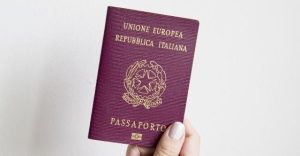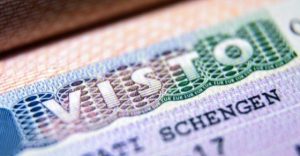The right of access to the Schengen Information System (SIS) and to delete the alerts
Jul 24, 2018
The Schengen Acquis established a joint information system referred to as “the Schengen Information System” or “SIS” with the goal to have access to alerts on persons and property for the purposes of border checks and other police and customs checks and for the purposes of issuing visas and residence permits.

What is the Schengen Information System?
The Schengen Information System (SIS) is a highly efficient large-scale information system that supports external border control and law enforcement cooperation in the Schengen States. The SIS enables competent authorities, such as police and border guards, to enter and consult alerts on certain categories of wanted or missing persons and objects.
What are the data listed in the SIS?
An SIS alert not only contains information about a particular person or object but also clear instructions on what to do when the person or object has been found. Data listed in the SIS include:
- persons for whom an alert has been issued;
- reason for the alert (this can be a prior overstay in the Schengen area or a warrant for arrest or
extradition);
- action to be taken.
How does it work?
Article 96 of the Acquis provides for data on aliens for whom an alert has been issued for the purposes of refusing entry shall be entered on the basis of a national alert resulting from decisions taken by the competent administrative authorities or courts of the issuing country.
Decisions may be based on a threat to public policy or public security or to national security which the presence of an alien in the national territory may pose.
This situation may arise in particular in the case of:
- an alien who has been convicted of an offense carrying a penalty involving deprivation of liberty of at least one year;
- an alien in respect of whom there are serious grounds for believing that he has committed serious criminal offenses, including those
referred to in Article 71 (i.e. the illegal export of narcotic drugs and psychotropic substances, including cannabis, as well as the sale, supply and handing over of such products and substances) or in respect of whom there is clear evidence of an intention to commit such offenses;
- decisions may also be based on the fact that the alien has been subject to measures involving deportation, refusal of entry or removal which have not been rescinded or suspended, including or accompanied by a prohibition on entry or, where applicable, a prohibition on residence, based on a failure to comply with national
regulations on the entry or residence of aliens
Protection of personal data and security
Alerts shall be governed by the national law of the Contracting Party issuing the alert (art. 104 Acquis) and the law of each Contracting Party shall apply to data entered in its national section of the SIS.
Only the Contracting Party issuing the alert shall be authorized to modify, add to, correct or delete data which it has entered (art. 106). Each Contracting Party shall designate an authority which shall have central responsibility for its national section of the SIS (art. 108).
Right to request correction or deletion of data
Under Article 109 of the Convention anyone has the right to have access to data entered in the SIS which relate to him and may:
- have factually inaccurate data relating to them corrected or unlawfully stored data relating to them deleted (art. 110); and
- bring before the courts or the authority competent under the national law an action to correct, delete or obtain information or to obtain compensation in connection with an alert involving them (art. 111).
Procedure
The rules of procedure differ from one country to another, in that there are currently two types of the system governing the right of access to police data files – and thus the SIS. In some countries the right of access is direct to the authorities handling the data (police, gendarmerie, customs, etc.), in others it is indirect and the person must send his request for access to the national data protection agency of the State to which the request is addressed.
The procedures specific to each country applying the Schengen acquis which are to be followed by persons wishing to exercise their right of access are outlined in the Guide for exercising the right of access (available in 23 languages) compiled by the Joint Supervisory Authority of Schengen of October 15, 2015.
Special thanks to Vreemdelingenrechtcom.blogspot.com for sharing this article at Het Schengen Informatie Systeem en hoe je jezelf er uit krijgt
Giuditta Petreni has over 10 years of experience in assisting companies and business investors with relocation of managers and staff to Italy. Giuditta has extensive experience advising corporate and private clients on a full range of Italian immigration categories. She is fluent in Italian and English.



























